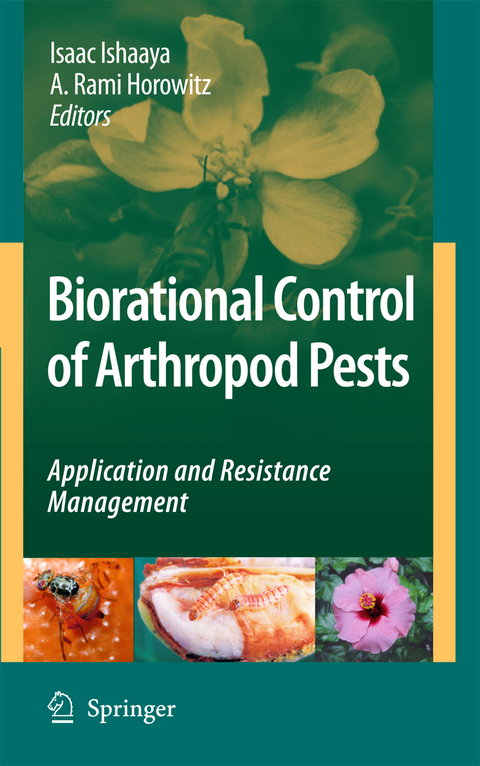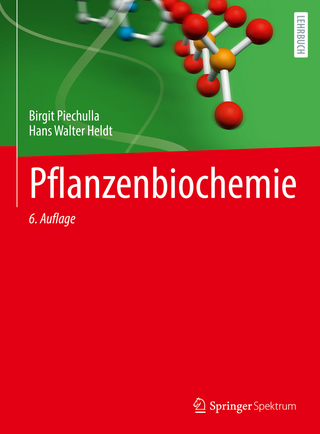
Biorational Control of Arthropod Pests
Springer (Verlag)
978-94-007-9168-8 (ISBN)
Biorational Pest Control – An Overview.- Agonists/Antagonists of the Insect Kinin and Pyrokinin/PBAN Neuropeptide Classes as Tools for Rational Pest Control.- Rational Design of Insect Control Agents: The PK/PBAN Family as a Study Case.- Tyramine and Octopamine Receptors as a Source of Biorational Insecticides.- Recent Advances in the Mode of Action of Juvenile Hormones and Their Analogs.- ?-Aminobutyric Acid Receptors: A Rationale for Developing Selective Insect Pest Control Chemicals.- Natural Products: Plant Lectins as Important Tools in Controlling Pest Insects.- Genetically Modified Insects as a Tool for Biorational Control.- Symbiosis Research as a Novel Strategy for Insect Pest Control.- Novel Approaches for the Management of Mealybug Pests.- Manipulation of Insect Signaling for Monitoring and Control of Pest Insects.- Physical Control: An Important Tool in Pest Management Programs.- A Systems Approach to IPM Integration, Ecological Assessment and Resistance Management in Tree Fruit Orchards.- Mechanisms of Acaricide Resistance in the Two-Spotted Spider Mite Tetranychus urticae.
| Erscheint lt. Verlag | 2.11.2014 |
|---|---|
| Zusatzinfo | XI, 408 p. |
| Verlagsort | Dordrecht |
| Sprache | englisch |
| Maße | 155 x 235 mm |
| Themenwelt | Naturwissenschaften ► Biologie ► Biochemie |
| Naturwissenschaften ► Biologie ► Botanik | |
| Naturwissenschaften ► Biologie ► Zoologie | |
| Weitere Fachgebiete ► Land- / Forstwirtschaft / Fischerei | |
| ISBN-10 | 94-007-9168-2 / 9400791682 |
| ISBN-13 | 978-94-007-9168-8 / 9789400791688 |
| Zustand | Neuware |
| Haben Sie eine Frage zum Produkt? |
aus dem Bereich


